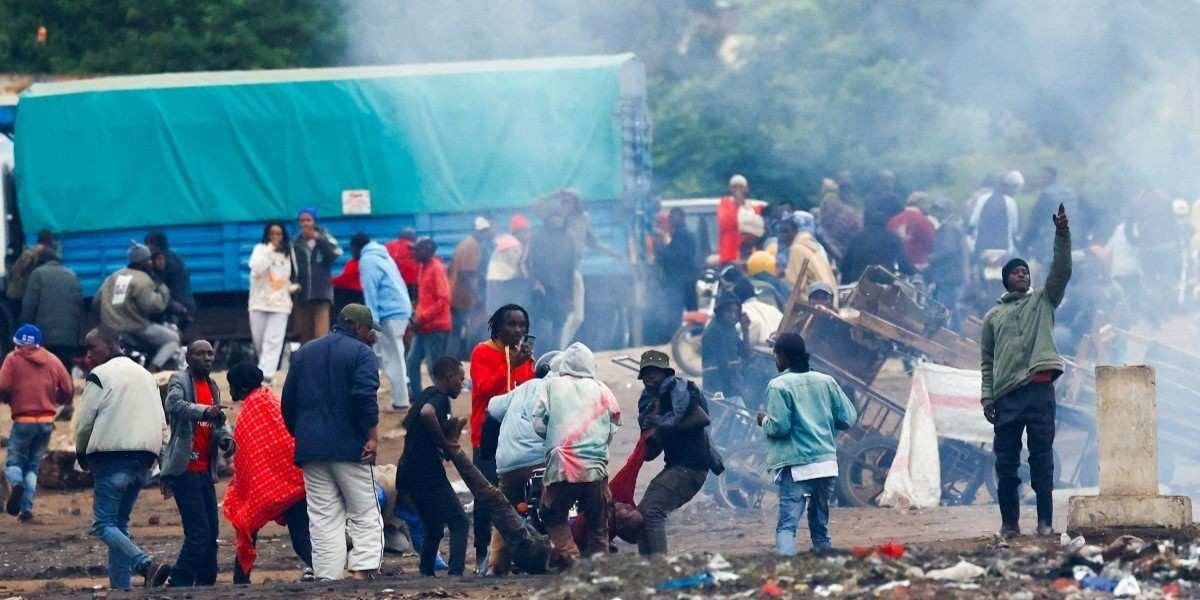Tanzania has been
rocked by violence for three days now, following a national election earlier this week. Protestors are angry over
the banning of candidates and detention of opposition leaders by President
Samia Suluhu Hassan, the East African nation’s first female leader, who is widely expected to secure a new mandate (results are expected Saturday). The government has not only deployed troops and imposed a curfew in the capital, Dar Es Salaam, but
throttled access to social media platforms and messaging apps.
That last move echoes a troubling trend of governments across Africa cutting internet access during moments of political uncertainty. Between 2016 and 2023,human rights groups claim African governments have shut down the internet 59 times during protests, 25 times during elections, 11 times during conflict and six times during military coups. In 2024, digital-rights monitors counteda record 21 shutdowns across 15 African countries, an all-time high, suggesting “digital darkness” is becoming a routine means of maintaining power.
How do shutdowns happen? Regulators order telecom companies to either pull the plug on internet access entirely, to throttle bandwidth to make services unusable, or to block specific platforms like X, WhatsApp, or TikTok. Officials generally justify the moves as necessary to curb “misinformation” or “incitement,” but the real goal is generally to limit opponents’ ability to mobilize supporters, share information, and alert the press to what is happening.
Why was there a shutdown in Tanzania? It’s a go-to move for the government there. Authorities first shut down the web during the 2020 election, blocking access to specific social media platforms. In August 2024, X was blocked and Tanzanian leadership ordered police to clamp down on youth organizing over Zoom; in October 2025 they cut access to Tik Tok Live and Instagram Live. Crackdowns have frequently coincided withthe detention of opposition leaders.
Where else is this happening in Africa? Research has shown thatthe longer a leader is in power, the more likely they are to deploy digital repression. Africa has some of the longest-serving leaders on the planet, but also the youngest electorates, making foran increasingly volatile combination.
Internet access was curtailed this yearin Congo, led by 79-year old President Denis Sassou Nguesso for 40 years, as the country grappled with a deepening civil war. Uganda’s president Yoweri Museveni – who is seeking toextend his 40 year term in next year’s elections –shut down the country’s entire internet during the 2021 election and has kept Facebook blocked ever since. Cameroonian president Paul Biya was justreelected for an eighth term, serving since 1982, and famously cut off internet servicefor 230 days in 2017, and multiple shorter times thereafter, includingduring the recent vote.
Conflict also serves as a pretext. The government of Ethiopia shut down internet and phone services in the province of Tigray for more than two years during its brutal civil war with separatist forces there. That effectively cut some 6 million people off from each other and from the outside world.
Do shutdowns work? While shutdowns can dampen protests for hours or days, they sometimes backfire long-term by galvanizing the opposition. Africa’s surge in shutdowns has been met bybacklash from groups like the African Commission on Human and Peoples’ Rights and the #KeepItOn coalition, who shine a light on abuses.
How are people coping? Youth networks, opposition parties, and journalists areadapting in a variety of ways. Activists pre-plan offline “low-tech” communications, such as community radio; newsrooms prepare mirrored sites and satellite uplinks; election observers switch to analog reporting. Some users get around the blocks with Virtual Private Networks (VPNs) and mesh networks, while others “sideload” apps on Android devices from unofficial app stores.
In Tanzania, local outlets and digital-rights groups alsoflagged restrictions in real time, and international coalitions have been pressing the government – so far unsuccessfully – to restore service. But with digital connectivity the new currency of politics, it’s hard to see long-time African rulers giving up control just yet.
